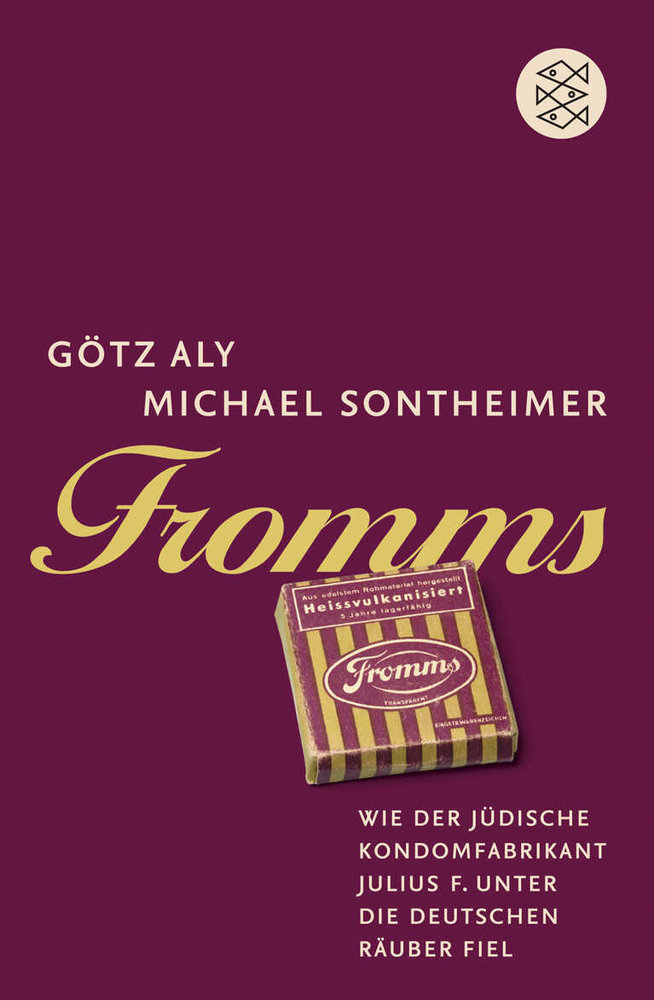+++Die Geschichte von Julius Fromm, der das Kondom erfand und 1938 als Jude von den Nazis enteignet wurde - eine Jahrhundertfigur+++
Hauchzarte, dreifach geprüfte Kondome - damit versorgte der jüdische Erfinder Julius Fromm in den 1920er Jahren deutsche Paare. Der bekannte Historiker Götz Aly und der 'Spiegel'-Redakteur Michael Sontheimer erzählen erstmals die Geschichte des Unternehmens und seines Gründers. Ab 1923 verließen wöchentlich Millionen »Frommser« die gläserne Fabrik in Berlin-Köpenick - architektonisch so revolutionär wie das Produkt. Binnen kurzer Zeit war der mittellose ostjüdische Zuwanderer zum angesehenen Großfabrikanten aufgestiegen, bis ihn der deutsche Staat 1938 verjagte und ihn »arische« Volksgenossen seines Lebenswerks beraubten. Hermann Göring ließ das florierende Unternehmen seiner Tante zukommen. Julius Fromm überlebte den Holocaust im Exil - doch nach dem Krieg enteigneten deutsche Kommunisten ihn ein zweites Mal. Eine bewegende Geschichte, in der sich das 20. Jahrhundert spiegelt.



